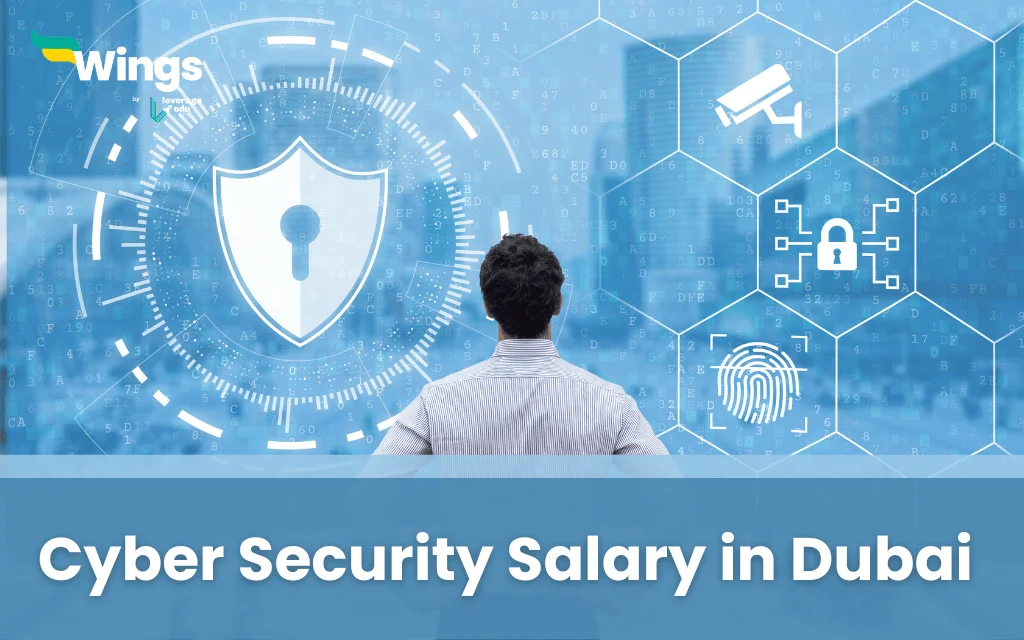30 New Reasons For Deciding On A Cybersecurity Company in UAE
30 New Reasons For Deciding On A Cybersecurity Company in UAE
Blog Article
Top 10 Suggestions For Evaluating The Range Of Services Of Cybersecurity Services In Dubai, Uae
1. Start by identifying which main services your company provides. The most common offerings are risk assessments and incident management, threat management and vulnerability assessments as well as penetration testing as well as security audits. Understanding their primary capabilities can help determine if your needs are in line with theirs.
2. Assess Managed Security Services
Check if the company provides managed security services. MSS providers provide constant monitoring and security system management essential for organizations that lack in-house expertise. By evaluating their capabilities, you are able to determine their ability provide ongoing assistance.
3. Assessment Compliance and Regulatory Services
Verify that the cybersecurity firm has services that are in compliance with local and international regulations. It is possible that you require assistance with local data protection legislation, PCI DSS or GDPR. A strong compliance focus is essential for organizations operating in highly regulated sectors.
Review the Incident Response Capabilities
Investigate the company's incident response services. A robust incident response plan includes detection, containment, eradication of the threat, recovery and lessons from the experience. Knowing how they respond to incidents will give them insight into how prepared they are for handling cyber breaches.
5. Specialized Services
Ask them if they provide special services that are suited to specific industries or requirements. It could include IoT or cloud security, or specific security solutions tailored to specific sectors like healthcare and finance. Specific services highlight the company's abilities to solve unique problems.
6. Examine Training and Awareness Programs
Ask your company if they offer education and awareness programs for your employees. Training is essential to minimize human error, which is the primary reason for security breaches. Training from top companies will help you improve your security.
7. Check for Threat Intelligence Services
If the business offers intelligence services, ask about these. These services offer organizations information about threats and weaknesses that allow for proactive security measures. A comprehensive threat intelligence program will help you improve your security strategy.
8. Evaluate Technology Partnerships
Take a look at the partnerships the company has formed with technology companies. Collaborations with the top cybersecurity companies will expand the service range and allow you to use the most current tools and solution. A wide technology ecosystem is a good option to offer more security.
9. Examine Customization and Flexibility
If you want to find a provider that will customize their services to meet your specific needs consider the capacity of the company to do so. In the world of cybersecurity, a single-size is not going to be sufficient. Understanding the flexibility of the company in the design of their solutions is crucial for addressing unique risk.
Review Service Level Agreements
Then, look over the Service Level Agreements (SLAs) for the services that are offered. SLAs must clearly define the scope of services, response time, and performance measures. Knowing these agreements will help set standards for service delivery and accountability. Take a look at the best Cybersecurity Company in UAE for website tips including cyber security info, network security solutions, network security tools, cybersecurity technologist, cyber security requirement, cyber security risks, cyber security analyst, managed security, cyber security risks, network security in cyber security and more.
Top 10 Ways To Evaluate The Incident Response Capability Of A Cyber Services Firm
1. Understanding the Incident FrameworkBegin the process by looking at the framework of incident response that is used by your company. Frameworks that are well-defined for example, like the NIST Cybersecurity Framework (or the SANS Incident Response Process), indicates the company adheres to industry best practice for managing incidents. It is important to ensure that they have a planned procedure for handling incidents.
2. Evaluate Incident Response Team Expertise
Examine the qualifications and experience of team members. Look for certifications such as Certified Incident Handler (GCIH) or copyright Security Professional (copyright). It is crucial to have a team that has the required knowledge and experience to handle and reduce incidents.
Study past Incident Case Studies
Ask for cases or studies of past incidents managed by the company. Analysing their response to realistic scenarios can give valuable insight on their efficiency and speed in managing incidents. Seek out detailed descriptions of the ways in which the company identified and contained, resolved, and handled incidents.
4. Check for 24/7 Incident Response Incident Response Availability
Find out if they provide 24 hour emergency services. Cybersecurity incidents can happen anytime. With a ready team around the clock, threats can be dealt with quickly. This reduces the risk of the damage and helps in recovering.
5. Request information on the Incident Detection Tool.
Review the tools utilized to monitor and detect incidents. Effective detection tools like Security Information and Event Management systems as well as Intrusion Detection Systems (IDS) are vital in identifying threats quickly.
6. Examine Communication Protocols
Investigate the protocols for communication that companies employ in the event of an emergency. Communication is crucial to coordinating response, informing all stakeholders and making sure that everyone knows what their roles are in the event of an incident. Find out how they can keep their customers updated throughout the entire response procedure.
7. Review Post Incident Review Processes
Find out more about the company's post-incident assessment processes. A thorough analysis of an incident is a good way to identify the lessons learned as well as improvement areas. Companies that make adjustments in response to these reviews will be more efficient.
8. Assess Recovery and Remediation Strategy
Knowing the methods the company uses to recover and remediate after an incident is crucial. Reliable recovery plans must specify how they restore data and systems and ensure that any vulnerabilities are addressed to prevent future occurrences. Inquire about their approach to recovering and strengthening systems following an incident.
9. Review the compliance with regulatory requirements.
Check that your ability to respond to incidents is in line with the applicable legal requirements. There may be specific requirements for industries in response to incidents and reporting. An organization that is well-versed with the regulations can help to ensure the compliance.
10. Ask for references and testimonials.
In order to gather references, ask existing clients whether they've ever utilized the services offered by the company. Testimonials from customers provide an insight into a company's effectiveness, reliability, overall satisfaction, and the quality of its response to incidents. See the top rated application penetration testing dubai for blog advice including network security in cyber security, cyber security ot, it security jobs, cyber security security, information security description, data security, secure it company, network it security, it security jobs, cyber cyber security and more.
Top 10 Tips For Assessing The Security Awareness Training In A Cybersecurity Services Company
1. Review Training ContentStart to determine the content of the security awareness training programs. Verify that the training program covers important topics such as social engineering and phishing, password security and data security. To provide employees with the skills to detect and react effectively to any potential threats, it's essential to ensure that the curriculum covers all essential topics.
2. Check for Customization Option
Find out if the training will fit into your company's culture and requirements. Making the training tailored to meet the unique challenges and scenarios faced by your employees can enhance relevance and engagement and improve retention of information.
3. Examine the methods used to deliver training.
Explore your options for delivering. You can choose to use online courses, webinars as well as interactive simulations. Different formats are available to meet the needs of different learning styles and increase overall efficiency.
4. Interactive Elements
Verify that the course contains interactive elements, such a quizzes simulations and real world scenarios. Interactive training can improve retention and engagement, making it easier for staff to apply the skills they've acquired in real situations.
5. Review frequency and updates.
Ask how often the content and training sessions will be revised. In light of the constant evolution of cyber-attacks it is vital that employees are kept updated with regular training sessions.
6. Determine the efficiency of your programs
Knowing how the company evaluates the effectiveness of their training programs is vital. Examine trends like post- and pre-training feedback, participant assessments, and incident report data. It's important to measure the effectiveness of your training programme. This will allow you to decide if it's worth investing in and where improvements can be made.
7. Verify that the Certification is valid and complies.
Examine if the program will be accompanied by certification at the end of the program. Certifications can increase employee credibility by demonstrating that they have the required skills. Make sure you align the training with any relevant regulatory compliance needs your organization is required to meet.
8. Seek out testimonials and references.
Testimonials from past clients are an excellent way to evaluate the efficacy of your training. Testimonials can provide an insight into the effectiveness of the training and the way it was received by the employees. Positive feedback from clients may suggest that a company is well-known for offering effective awareness-training.
9. Assess Post-Training Support
Ask about support after training. Information such as newsletters, refresher courses or access to an online knowledge base will aid in enhancing training and keeping security awareness at the forefront of employees' minds.
10. Assessment Engagement and Building Culture
Decide on how your training program helps to establish a culture of safety within your organization. You should look for initiatives to promote awareness such as newsletters about security, workshops or competitions. A strong culture of security encourages employees take ownership in the security of the company. View the recommended iconnect for site advice including cyber security tech, cyber security technology, managed security services provider, network and systems security, information security and, it security technologies, consulting security, cybersecurity consultancy services, managed it services security, it security jobs and more.